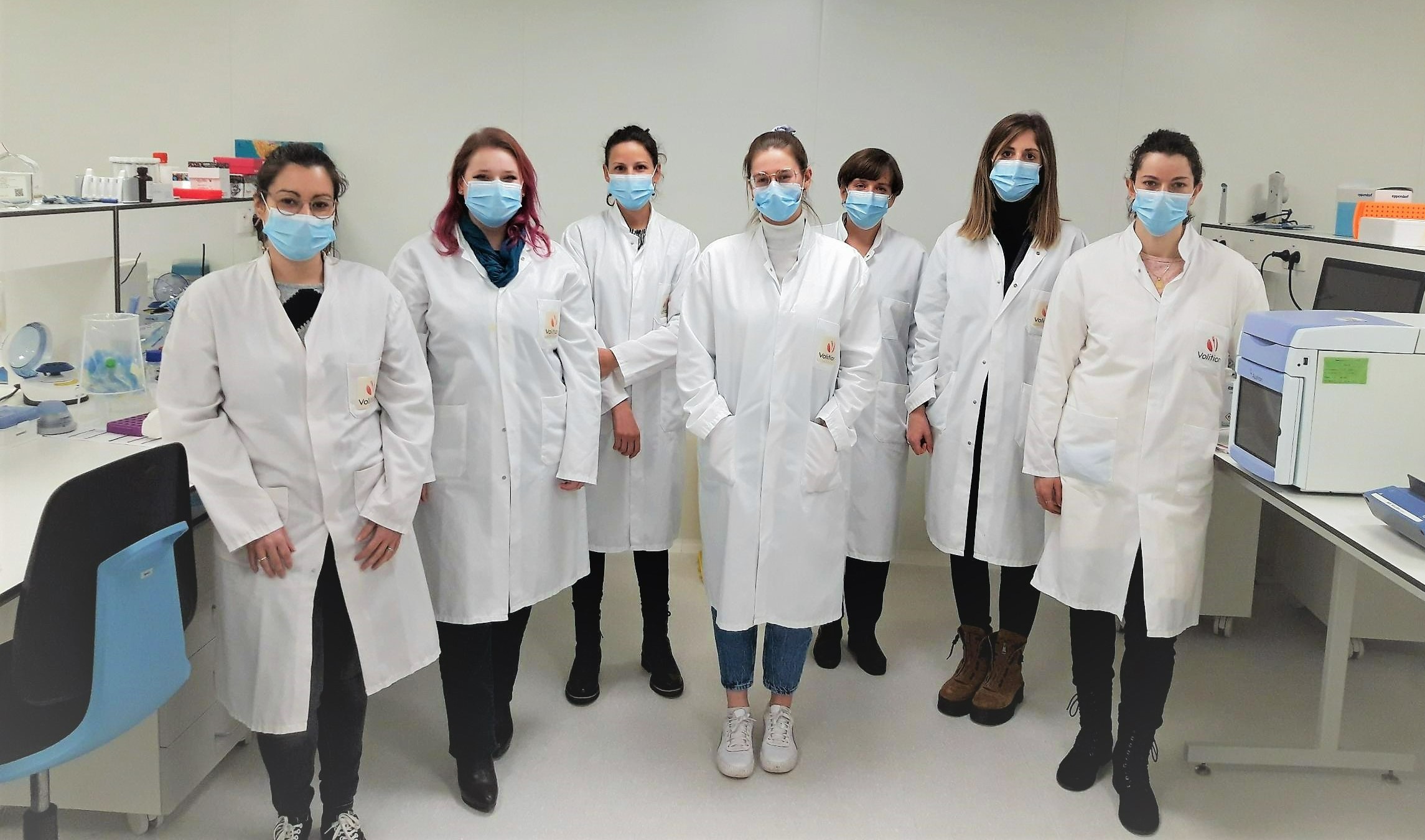-
Nu.Q® Technology
Our technology detects characteristic epigenetic changes in nucleosomes that occur from the earliest stages of cancer, sepsis and other diseases.
-
- Our Tests
- Human Health
-
Nu.Q® NETs
Nu.Q® NETs is a groundbreaking CE-marked diagnostic solution that clinicians can use to detect NETosis.
-
Nu.Q® Discover
Buy our Nu.Q® Discover H3.1 Research Use Only Assay
- Animal Health
-
Nu.Q® Vet Cancer Test
Nu.Q® Vet Cancer Test is an affordable, accessible blood test that detects cancer in dogs.

Celebrating International Day of Women and Girls in Science.
- Share
- Tweet
- Share on Facebook
- Share
To celebrate this year’s International Day of Women and Girls in Science, we asked our colleagues what inspired them to get into science, the most memorable moments of their careers, which scientists they would add to their teams, and more.
Read their answers below ⬇️

1. What or who inspired you to pursue science and why did you choose nucleosomics?
Julie: I have always been a curious person, eager to know how things work and in particular what governs the living world. I therefore naturally turned to biology studies, during which I was won over by genetics in the broader sense. Scientific knowledge, especially epigenetics, is a powerful tool to help people. Working on nucleosomics at Volition allows me to combine the aspects that are important to me and to contribute to the diagnostic solution.
Terry: My interest in science, and more specifically biology, stems from my innate curiosity and passion for learning. Understanding biologic regulatory mechanisms is a never-ending puzzle with many questions to answer and discoveries to be made. I can’t think of anything more exciting to do.
2. What would you say if you could go back in time and talk to yourself at the start of your career?
Brandi: Make sure you are doing what you love, always learn and surround yourself with those that can contribute to your learning. Doing what you love will always motivate you to keep going forward. The best advice I’d give myself is that it doesn’t matter if you aren’t the smartest person in the room. In fact, it will better serve you not to be. Surround yourself with people who will always challenge you to learn and progress. The unknown may be scary, but be grateful for the opportunity for growth. Given a project you’ve never done before? The knowledge you gain from taking it head-on will make it the most fulfilling project.
Julie: Cultivate your curiosity, keep an open mind, and multiply your experiences. This can only be beneficial for your development.
3. What has been the most exciting/memorable moment of your career so far?
Emilie: The visualization of NETs (Neutrophil Extracellular Traps) under confocal microscopy. It was amazing!
Julie: When I had the chance to meet Sir Paul Nurse, who was awarded the Nobel Prize in Physiology or Medicine in 2001 for his involvement in the discovery of protein molecules that control cell division in the cell cycle.
4. If you could add any scientist, dead or alive, to your team, who would it be?
Emilie: Team Volition is already amazing! But if I had to choose a famous scientist, I would say Rosalind Franklin. She largely contributed to the discovery of the structure of DNA… it is the basis of our current work.
Brandi: If given the opportunity, I would add two currently famous women from the field of chemistry. In 2020, Emmanuelle Charpentier and Jennifer Doudna were both announced winners of the Nobel prize in chemistry for the development of the CRISPR/Cas9 genome editing methodology. This is the first time that two women share the award, and their technology provides so much promise as a therapeutic tool for genetic disorders as well as having applications for targeted cancer therapies. Women in science are making huge advancements every day, and these two are such an inspiration for all of us. It would be amazing to add them to the team, and see what they think of our technologies and hear their ideas.
5. What do you hope to have accomplished in terms of your work in the next ten years?
Emilie: I simply want to always do my best to achieve set goals (personal or corporate), and thus contribute, even if imperceptibly, to progress in the field of health. Scientific research remains a great international team effort.
Brandi: I hope Volition will be known for having a big impact on cancer diagnostics, as early detection is key to a multitude of available therapies. If our assays can be the front-line defence against cancer or at least a front-runner, then every future patient who might hear the ‘C’ word won’t be scared as to what that means for them and their family. To be a small part of that would be the single greatest achievement of my career, and it’s what drives me every day to keep moving forward.
Subscribe for Volition product updates.
Or, click here for Investor Updates and press releases.
"*" indicates required fields